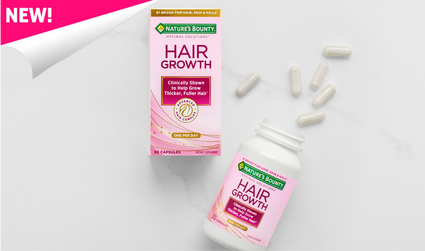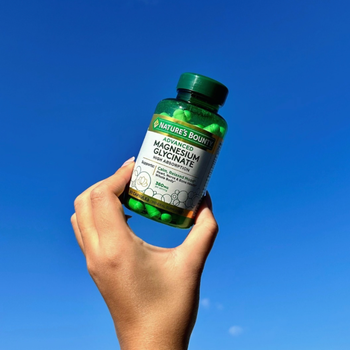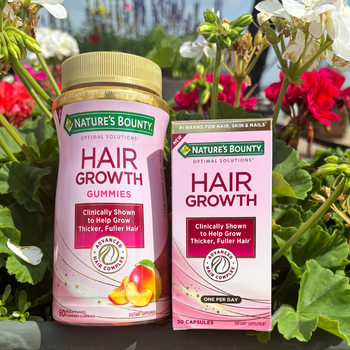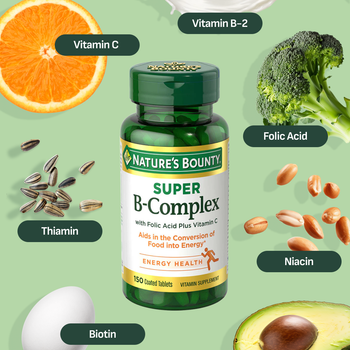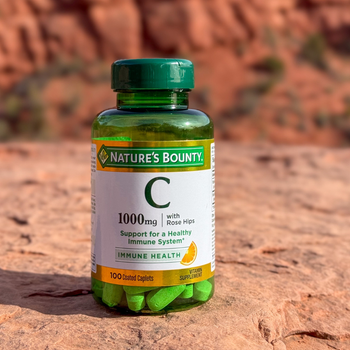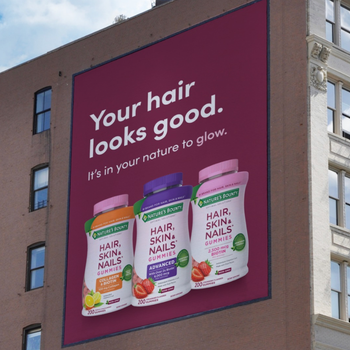
What Women Need to Know About Detecting Breast Cancer Early: An Interview with Susan Brown, M.S., R.N., at Susan G. Komen®
Breast cancer screening and early detection play an important role in a woman’s health. Nature’s Bounty® is a proud supporter of Susan G. Komen (Komen) and Race for the Cure to help promote early detection while funding research and providing services for those who need it today.
We had the opportunity to learn more about early detection from Susan Brown, M.S., R.N., senior director Health Information and Publications at Komen.
NB: We see you’ve been with Komen for more than 20 years. In your years of experience, what is the number one piece of advice you’d give to women about early detection of breast cancer?
SB: Breast cancer screening tests can help find breast cancer at an early stage when the chances of survival are highest, so my advice focuses on four key actions:
- Talk with your health care provider to understand your risk of developing breast cancer,
- Talk with your health care provider about the screening tests that are right for you based on your risk, and then get screened according to that plan,
- Know what’s normal for you, so you can track changes in your breasts and underarm areas, and when you notice changes, see your health care provider, and
- Make healthy lifestyle choices that may help reduce your risk of breast cancer, including exercising regularly, maintaining a healthy weight, limiting alcohol intake, among other healthy lifestyle choices.
NB: We know breast cancer education is focused on early detection through mammography screening and changes in how your breasts or underarm areas look or feel. Could changes in the skin of the breasts be a sign of breast cancer? If so, what should women look for on their skin?
SB: Changes in the skin can be a warning sign too. Women should be alert to these signs and symptoms in addition to the more commonly known sign of a breast lump. Any change in the breast or underarm should be reported to your health care provider.
- Lump, hard knot, or thickening inside the breast or underarm area
- Swelling, warmth, redness, or darkening of the breast
- Change in the size or shape of the breast
- Dimpling or puckering of the skin
- Itchy, scaly sore, or rash on the nipple
- Pulling in of the nipple or other parts of the breast
- Nipple discharge that starts suddenly
- New pain in one spot that doesn’t go away
The Susan G. Komen website is a great resource to better understand the warning signs and symptoms of breast cancer.
NB: When should a woman contact their health care provider about changes they see or feel in or on their breasts?
SB: If a woman (or man) sees or feels any changes in their breasts or underarm areas, they should contact a doctor and make an appointment to get the area checked. Of course, if you see or feel a change in your breast, it’s normal to be concerned, but it doesn’t mean you have breast cancer. It means you have a change in your breast that needs to be evaluated by a doctor. The doctor may suggest follow-up tests to explain the change.
NB: Is there anything else women should know about breast cancer detection/screenings?
SB: Mammography screening provides an opportunity to find breast cancer early, for most women, years before a change is noted clinically. However, it isn’t a perfect test, which is why it’s important for women to also know the warning signs of breast cancer and report any change to a health care provider. Sometimes a screening test, either a mammogram or a breast exam by a doctor, detects an area of concern that may lead to more tests necessary to rule out or diagnose breast cancer. Whether it’s your first mammogram or you want to learn more about follow-up tests after an abnormal finding, Komen has resources that help explain these tests.
More early detection and self-awareness tips are available from Komen.
As a part of Nature’s Bounty’s commitment to helping fund research and care services for those with breast cancer, we will donate $0.50 to Susan G. Komen® for every bottle sold of Hair Skin and Nails Gummies, Hair Skin and Nails Advanced Gummies and Hair Growth Gummies or Capsules from September 1, 2025 to November 30, 2025. Together with other program initiatives, Nature’s Bounty® will make an aggregate guaranteed minimum donation of $175,000 to Susan G. Komen®, not to exceed $200,000.
Learn more about our
Susan G. Komen® partnership here.
